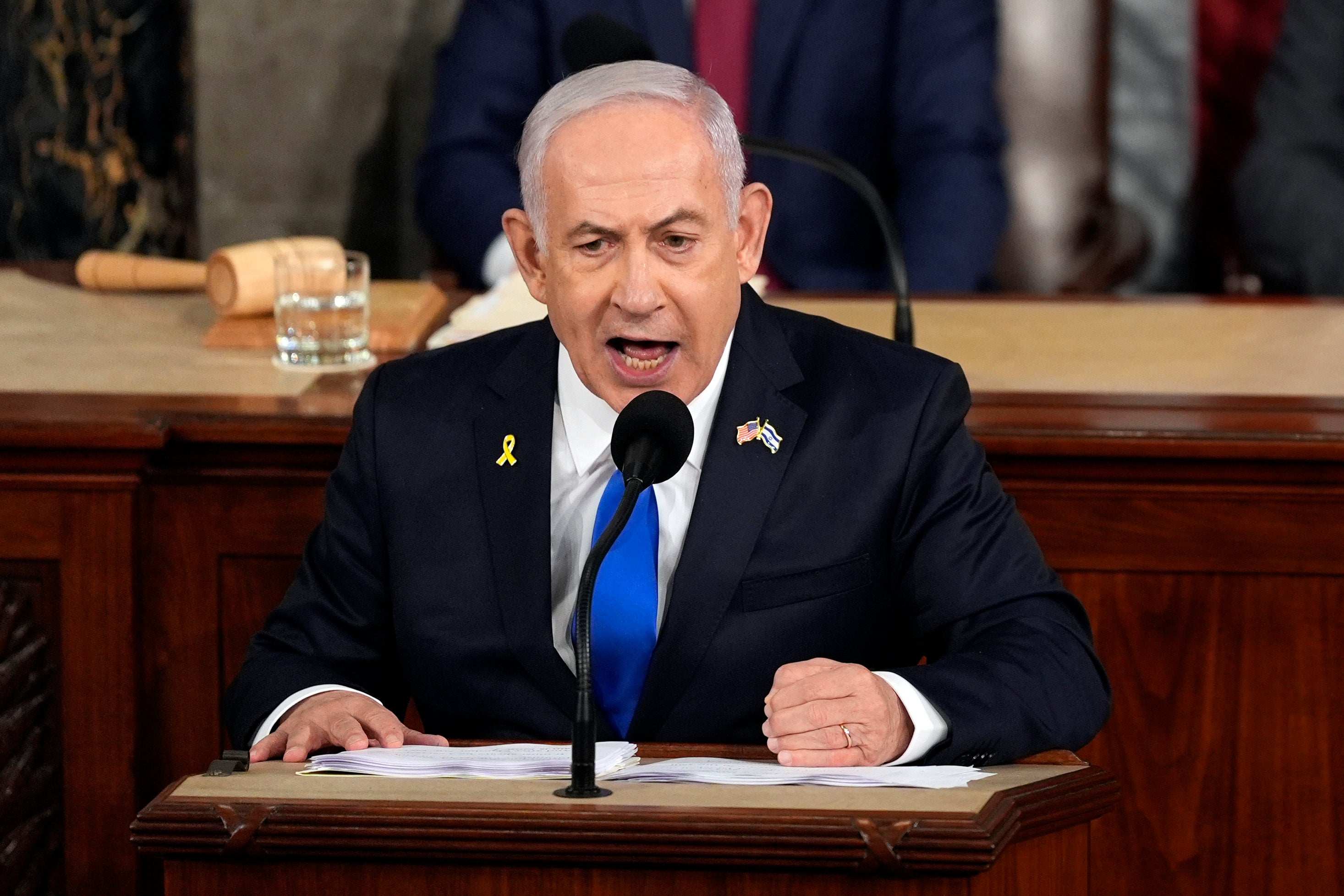There’s only one man who can stop all-out war between Israel and Lebanon
Could the fierce cross-border conflict that has raged between Hezbollah and Israel since last October escalate? Donald Macintyre, who covered the war in the region in 2006, warns that the outcome depends on Benjamin Netanyahu


The falling of a Hezbollah rocket on a soccer field in the Golan border town of Majdal Shams at the weekend was a calamity, first and foremost, for the families of the 12 innocent Druze children and teenagers who were killed – along with the dozens of others who were wounded.
But it is also just the kind of incident that experts had long warned could finally turn the fierce (but so far contained) cross-border conflict that has raged between Hezbollah and Israel since last October into all-out war.
It doesn’t matter that the attack took place in what most of the world still sees as Israeli-occupied territory, or that some of its (particularly older) residents identify strongly as Syrians. Or that Hezbollah presumably misfired, having surely intended, if only in its own interests, to hit a military target – possibly an Israel Defence Forces outpost on Mount Hermon, in whose foothills Majdal Shams sits.
It’s also not even that Hezbollah already knew the town’s residents had not evacuated – unlike most of the northern Israeli communities along the Lebanese border – and therefore had a responsibility to prevent this from happening.
The most pressing issue at hand is that an Israeli government not hitherto known for its restraint will feel obliged to retaliate by exacting from Hezbollah what Benjamin Netanyahu, Israel’s prime minister, has warned will be “a heavy price which it has not paid up to now.”
What Netanyahu has to decide now – having been entrusted by Sunday’s security cabinet meeting with deciding a response, alongside his defence minister, Yoav Gallant – is how far to go.
Caught between the bellicose calls from some on his own side to engage in punitive retaliation – for example, by assassinating Hezbollah’s leader, Hassan Nasrallah – and the urges of the international community, including the US, for restraint, he faces a dilemma.
Can he devise some form of heavy blow against the amply armed Shiite militia that does not further escalate the crisis? Or does he risk a regional war, which could involve Iran – of which Hezbollah is undoubtedly a proxy – and the United States, extending across the Middle East and possibly even beyond?
Even without such a regional escalation – and it’s doubtful that either Iran or Hezbollah is willing to be drawn into such a conflagration at present – an all-out war between the two is still a distinctly sombre prospect.
No one who reported on the 2006 conflict – as I did, from northern Israel – can doubt the probable impact. In that 34-day war, which involved a ground invasion of southern Lebanon by the IDF, upwards of 1,000 were killed in Lebanon. At least 118 Israel soldiers and 43 Israeli civilians also lost their lives, mainly in the north.
But this time, such a war would almost certainly be far more lethal. Hezbollah has a formidable arsenal – much greater than that of Hamas. According to CIA estimates, Hezbollah has in its possession some 150,000 rockets and missiles of various types, including long-range models, which its leaders claim can reach every part of Israel.
Most of the Israeli victims in 2006 were, of course, Jewish, but the slaughter of Druze people in Majdal Shams is a reminder that not all of them would be this time.
Besides the constant noise of outgoing artillery and incoming rockets in the far northern town of Metula, abutting the Lebanese border, I can remember taking shelter from Hezbollah rocket fire in a dank cellar under a shop in the mixed city of Haifa, with four doughty Palestinian women.
One was 83. Another was a Christian who had come from the funeral of two close friends killed in Haifa two days earlier. Another was visiting Nazareth, where Arab families were grieving after a Katyusha rocket from Lebanon had come out of a clear July sky and killed two small boys aged three and seven.
As at Majdal Shams, both the Haifa and Nazareth victims lacked shelters.
But this is only a reminder that if there is another Lebanon war, just as in Hamas’s attack on 7 October and Israel’s devastating response in Gaza, many civilians will die – both Jewish and Arab.
Israel, no doubt, has a strong case for the full implementation of UN resolution 1701, which ended that 2006 war and required Hezbollah to withdraw to the north of the Litani river. But Western powers – including the US – have been urging Israel to favour diplomacy rather than force in its efforts to secure such a withdrawal. The problem is, there is little chance of that happening (if at all) until the war in Gaza is over.
There is no doubt that Hezbollah started the present hostile engagement with Israel in support of Hamas. In parallel with the present crisis to the north, negotiations that would see a ceasefire and the return of the 130 hostages held by Hamas for nine months are continuing.
But the pace has been painfully slow, with an increasing number of Israeli politicians and commentators, along with the families of the hostages themselves, believing that one of the principal reasons for this is that Netanyahu is dragging his feet.
The omens at present are not encouraging. But a successful ceasefire deal for Gaza may also hold the key to preventing a major escalation over the Lebanese border – a development that no one sane could want.
Join our commenting forum
Join thought-provoking conversations, follow other Independent readers and see their replies
Comments
Bookmark popover
Removed from bookmarks